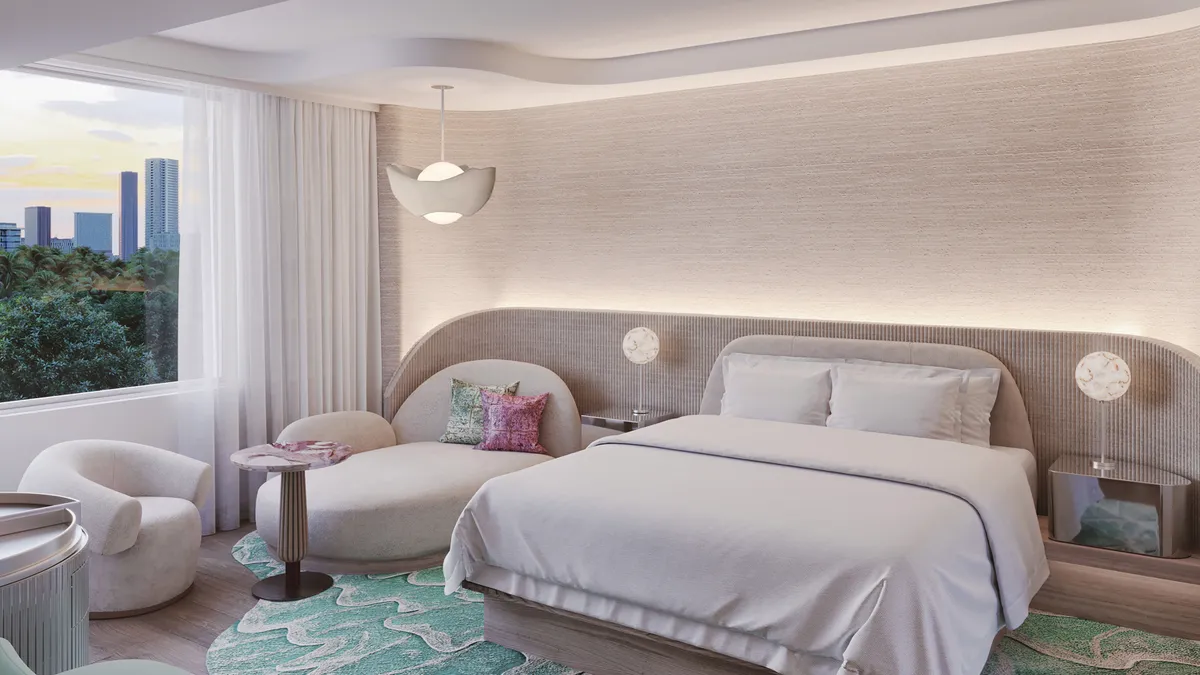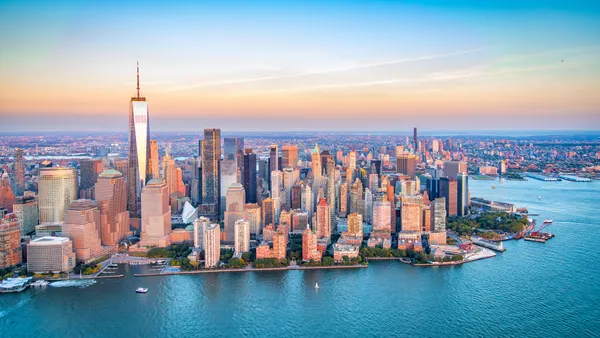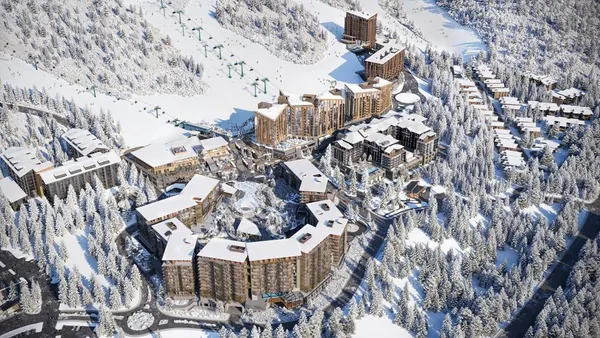Dive Brief:
- Hyatt Hotels announced the opening of Andaz Miami Beach on Monday, marking the luxury lifestyle brand’s Florida debut.
- The hotel — a renovation and rebrand of the former Confidante Miami Beach — features 287 guest rooms including 64 suites, three dining concepts by José Andrés Group, two heated outdoor pools, a spa and a members’ beach club.
- The opening is the first by Hyatt Lifestyle Group, which was formed after Hyatt acquired Standard International last year and is led by former Standard Executive Chairman Amar Lalvani.
Dive Insight:
Lalvani, who joined Hyatt after the Standard acquisition, is now president and creative director of the Lifestyle Group, which is headquartered in New York City.
In an August announcement, Hyatt said the group would leverage the company’s operational and loyalty infrastructure while assuming “distinct leadership across key functions including experience creation, design, marketing, programming, public relations, restaurants, nightlife and entertainment.”
Owned by California’s Sunstone Hotel Investors and designed by Florida-based EoA Group and Hyatt Lifestyle Group’s in-house design team, Andaz Miami Beach’s rooms and suites feature ocean or skyline views.
Two of the José Andrés-led dining concepts, Aguasal and Bar Centro, are open, while the third, The Bazaar by José Andrés, is slated to open later this year. José Andrés Group is currently developing its first hotel in Washington, D.C.
The hotel’s spa and beach club will also open “in the coming months,” per Hyatt.
Hyatt announced plans to open Andaz Miami Beach last year as part of its ongoing luxury lifestyle push, targeting Florida specifically for “new growth in one of the most visited leisure markets in the world,” per the company.
In September, Hyatt doubled down on its commitment to expand in its lifestyle division, which quintupled its room count worldwide between 2017 and 2024. Other brands in Hyatt’s lifestyle portfolio include Thompson Hotels, JdV by Hyatt and The Standard.
Last week, Hyatt forecast slower RevPAR growth for the remainder of 2025 as leisure demand softens.












